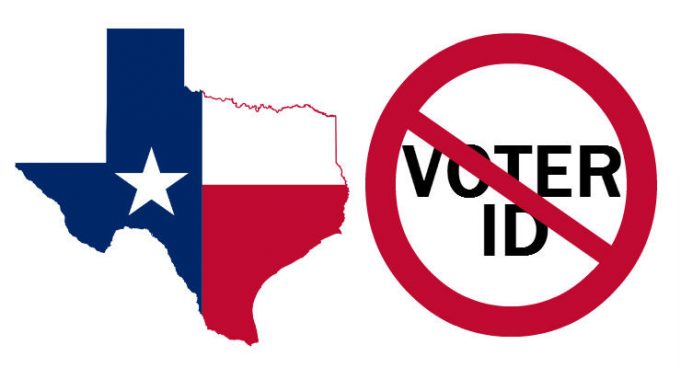A federal judge ruled for the second time on Monday that Texas’ stringent voter ID laws were crafted with the intention of discriminating against minorities. This comes a month after another court found evidence of racial gerrymandering present in how Republican lawmakers drew the state’s election maps.
The latest ruling by U.S. District Judge Nelva Gonzales Ramos of Corpus Christi, the Associated Press reports, comes more than two years after she likened the ballot-box rules in Texas, known as SB14, to a “poll tax” meant to suppress minority voters. She is still holding to that conclusion after an appeals court asked her to go back and re-examine her findings.
“Proponents touted SB14 as a remedy for voter fraud, consistent with efforts of other states. As previously demonstrated, the evidence shows a tenuous relationship between those rationales and the actual terms of the bill,” Gonzales Ramos wrote.
The Texas law requires voters to show one of seven forms of identification at the ballot box. That list includes concealed handgun licenses but not college student IDs. A court forced Texas last year to provide more flexibility under the law for the November elections.
In another Texas decision announced last month, U.S. District Judges Xavier Rodriguez and Orlando Garcia in San Antonio found that the districts’ shapes diluted minority voters’ power, either by splitting communities into different districts or concentrating minorities in a single area to limit their sway.
Texas lawmakers drew up three U.S. congressional districts to undermine the influence of Hispanic voters, a divided panel of three federal judges ruled, in the latest development in a years-long battle over gerrymandering.
“When done to minimize Hispanic electoral opportunity, it bears the mark of intentional discrimination,” wrote Rodriguez and Garcia, who were appointed by former Republican President George W. Bush and former Democratic President Bill Clinton, respectively.










